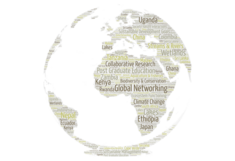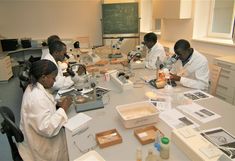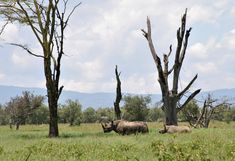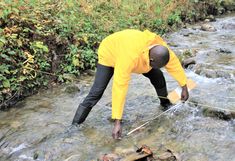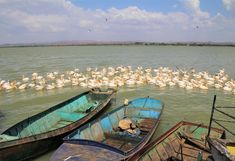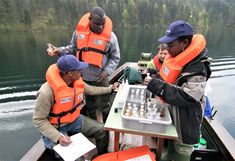IPGL
IPGL - International Post-Graduate Education & Research Hub in Limnology
Leader: Gerold Winkler
Deputy: Nina Haslinger
Key research areas
- Sustainable management of freshwater ecosystems
- Biodiversity, conservation and restoration of streams, rivers & wetlands
- Assessment of the ecological integrity of streams & rivers
- Human impact & multiple pressures on streams & rivers (climate change, land-use, hydropower & irrigation schemes, agriculture, livestock and wildlife)
- Nutrient & carbon cycles in riverine landscapes, including greenhouse gas components in streams, rivers wetlands and floodplains
- Sustainable aquaculture & fisheries
- Ecosystem services and drivers of society-nature interactions - Research for development and SDGs
- Capacity development and networking in the global south
- Geographic focus: Eastern Africa
IPGL is an international education-, research- and networking hub with the mission to improve the sustainable management of freshwater ecosystems & its services in the global south and to contribute towards the achievement of the SDG’s 2, 3, 4, 6, 12, 13, & 15.
Since 1975, more than 650 water/environmental professionals from the global south have attended IPGL training programmes. Several research & capacity development projects have been initiated/implemented in Eastern Africa and a large network of collaborating institutions and individuals has been established.
Key Persons
Impact of IPGL
The Austrian Foundation for Development Research (OEFSE) coordinated the implementation of an Impact Assessment Study, which covered the IPGL programme activity period from 1975 to 2021. The assessment confirmed key contributions of IPGL at multiple levels in the three partner countries Kenya, Uganda, and Ethiopia, as well as in Austria - such as the establishment of limnology as a recognised scientific field in Eastern Africa, quality improvements in higher education, intensifying N-S & S-S cooperation in research & higher eduction and contributions towards gender equality and the development of policies.
More information
Impressions & Social Media

